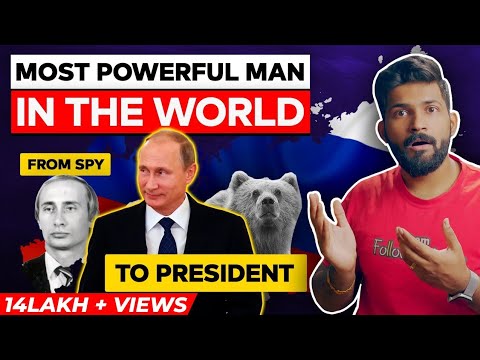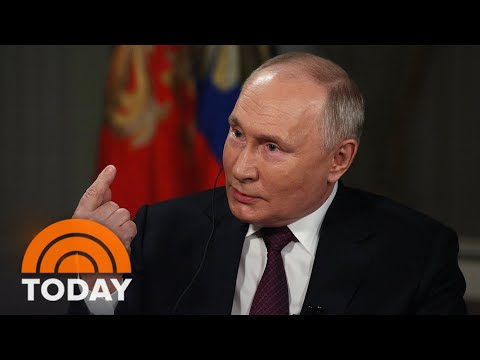What is Putin’s background in the KGB?
Are you curious about Putin’s background in the KGB? As a seasoned researcher on the subject, you must be eager to delve into the intricate details of Vladimir Putin’s past in the notorious Soviet intelligence agency. Let’s unravel the mysteries surrounding Putin’s time in the KGB through a listicle framework that will provide you with a comprehensive understanding of his covert activities and rise to power.
1. **Early Career in the KGB**:
Vladimir Putin joined the KGB in 1975 after graduating from Leningrad State University with a degree in law. His initial assignment was in the Second Chief Directorate, which focused on counterintelligence activities against foreign spies operating in the Soviet Union. Putin’s meticulous attention to detail and sharp analytical skills quickly caught the attention of his superiors, paving the way for a rapid ascent through the ranks of the KGB.
2. **Overseas Assignments**:
During his time in the KGB, Putin was stationed in Dresden, East Germany, where he worked undercover as a liaison officer at the Soviet embassy. This experience provided him with valuable insights into the inner workings of the Cold War intelligence game and honed his ability to navigate complex geopolitical landscapes. Putin’s time in East Germany also solidified his loyalty to the Soviet state and instilled in him a deep sense of duty to protect its interests at all costs.
3. **Rise to Power**:
After the collapse of the Soviet Union in 1991, Putin transitioned from the world of espionage to the realm of politics. His background in the KGB served as a valuable asset as he navigated the turbulent waters of post-Soviet Russia. Putin’s reputation as a shrewd operator with a keen understanding of power dynamics helped him secure key positions in the Russian government, eventually leading to his appointment as President in 2000.
4. **Legacy of the KGB**:
Putin’s time in the KGB continues to shape his leadership style and approach to governance. His background in intelligence gathering has made him a master of strategic thinking and long-term planning, allowing him to anticipate and counter potential threats to his regime. Critics argue that Putin’s authoritarian tendencies can be traced back to his KGB training, which emphasized loyalty, secrecy, and the ruthless elimination of enemies.
5. **Controversies and Allegations**:
Putin’s connections to the KGB have been a source of controversy throughout his political career. Accusations of human rights abuses, election meddling, and political repression have fueled speculation about the extent to which Putin’s KGB past influences his actions as President. While Putin denies any direct involvement in nefarious activities, his critics point to his KGB background as evidence of a sinister agenda to consolidate power and undermine democratic institutions.
In conclusion, Putin’s background in the KGB is a crucial aspect of his identity as a leader and a source of fascination for researchers and analysts alike.
Unveiling Putin’s Past: A Closer Look at His Role in the KGB
Are you curious about **Putin’s background in the KGB**? Let’s delve into the intriguing past of the Russian President and his involvement in this notorious organization.
– **Putin’s Early Days in the KGB**: Vladimir Putin joined the KGB right after graduating from Leningrad State University in 1975. He was initially stationed in East Germany, where he worked as an intelligence officer. His time in the KGB provided him with valuable experience in espionage and intelligence gathering.
– **Rise Through the Ranks**: During his tenure in the KGB, Putin steadily rose through the ranks, eventually reaching the position of Lieutenant Colonel. He was known for his efficiency, discipline, and loyalty to the organization. These qualities would later serve him well in his political career.
– **Controversies Surrounding Putin’s KGB Past**: Putin’s time in the KGB has been a subject of controversy and speculation. Some critics argue that his background in the organization shaped his authoritarian leadership style and his approach to governance. Others believe that his experience in the KGB has made him adept at dealing with international relations and security issues.
– **Legacy of the KGB**: The KGB was the main security agency of the Soviet Union, known for its ruthless tactics and extensive surveillance network. Its legacy continues to influence Russian politics and society to this day.
Understanding Putin’s role in the KGB sheds light on his worldview and decision-making process as a leader.
– **Putin’s KGB Background Today**: While Putin has moved on from his days in the KGB, his experience in the organization undoubtedly continues to inform his actions as President of Russia. His background in intelligence and security has shaped his approach to domestic and foreign policy, making him a formidable figure on the world stage.
In conclusion, Putin’s background in the KGB is a crucial aspect of his persona as a political leader. By examining his time in the organization, we can gain valuable insights into his mindset and motivations. Putin’s past in the KGB remains a topic of fascination and debate, highlighting the complex interplay between personal history and political power.
The Making of Putin: Exploring the Childhood Influences of Russia’s Strongman Leader
Are you curious about **Putin’s background in the KGB** and how it influenced his rise to power as Russia’s strongman leader? Let’s delve into the childhood influences of this enigmatic figure and explore the connections between his past and his present actions.
1. **Early Years**: Vladimir Putin was born in Leningrad (now St. Petersburg) in 1952, growing up in a communal apartment with his parents and siblings. His father was a factory worker and his mother a homemaker, instilling in him the values of hard work and discipline from a young age. These humble beginnings shaped Putin’s worldview and his approach to leadership in later years.
2. **KGB Career**: After studying law at Leningrad State University, Putin joined the KGB in 1975, serving as a spy in East Germany for several years. His time in the intelligence agency exposed him to the inner workings of power and espionage, honing his skills in manipulation and strategy. This experience would prove invaluable as he climbed the ranks of Russian politics.
3. **Political Ascendancy**: Putin’s transition from the KGB to politics was seamless, as he quickly rose through the ranks to become the President of Russia in 2000. His authoritarian tendencies and strongman persona can be traced back to his formative years in the KGB, where he learned the importance of control and surveillance in maintaining power.
4. **Childhood Trauma**: Some analysts believe that Putin’s difficult childhood, marked by poverty and hardship, contributed to his authoritarian leadership style. His desire for stability and security may stem from a deep-seated fear of chaos and disorder, leading him to prioritize control above all else in his governance.
In conclusion, Putin’s background in the KGB has had a profound impact on his development as a leader, shaping his worldview and approach to governance. By understanding the childhood influences of Russia’s strongman leader, we can gain valuable insights into his motivations and actions on the world stage.
Unveiling the Enigma: Decoding Putin’s Political Agenda
Are you curious about **Putin’s background in the KGB** and how it has influenced his political agenda? Let’s delve into this intriguing topic and unveil the enigma behind the man who has shaped Russia’s political landscape for decades.
First and foremost, it is essential to understand that **Vladimir Putin** spent a significant portion of his early career in the **KGB**, the notorious Soviet intelligence agency. Serving as a **KGB agent** in East Germany during the **Cold War**, Putin honed his skills in espionage, counterintelligence, and political manipulation. This experience provided him with a deep understanding of the inner workings of **intelligence operations** and the importance of maintaining control and power.
Furthermore, Putin’s time in the KGB instilled in him a **sense of loyalty**, **discipline**, and **secrecy** that have carried over into his **political leadership**. His **authoritarian** tendencies and **emphasis on centralized control** can be traced back to his **KGB training**, where **loyalty to the state** and **maintaining order** were paramount. This background has shaped Putin’s **political agenda**, which prioritizes **national security**, **power consolidation**, and **maintaining Russia’s status as a global superpower**.
In conclusion, Putin’s background in the KGB has had a profound impact on his **political ideology** and **leadership style**. By decoding this aspect of his past, we can gain valuable insights into the **motivations** behind his actions as **Russia’s president**. Understanding Putin’s **KGB roots** is essential for unraveling the **enigma** of his **political agenda** and the strategies he employs to maintain his grip on power.
In conclusion, Vladimir Putin’s background in the KGB has had a significant influence on his leadership style and decision-making as the President of Russia. His experience in the intelligence agency has shaped his approach to governance and foreign policy, often characterized by a strategic and assertive stance on the global stage.
**Frequently Asked Questions:**
**- How did Putin’s time in the KGB prepare him for his role as President?**
**- What were Putin’s responsibilities while serving in the KGB?**
**- Did Putin’s KGB background contribute to his authoritarian leadership style?**
As we delve into the intricacies of Putin’s past in the KGB, it becomes evident that his experiences have played a crucial role in shaping his political career. While some view his background with suspicion, others argue that it has equipped him with the skills necessary to navigate the complex world of international relations. Regardless of one’s perspective, there is no denying the impact that Putin’s time in the KGB has had on his leadership of Russia.



I think Putins KGB background adds intrigue to his leadership style. What do you think?
Putins KGB past doesnt define him today. Lets focus on his current actions! 🇷🇺
I think Putins KGB background adds an intriguing layer to his leadership style.
Did Putins KGB past shape his leadership style? Lets discuss! 🤔🕵️♂️ #ControversialOpinion
Maybe Putins KGB background is what makes him such a strong leader today.